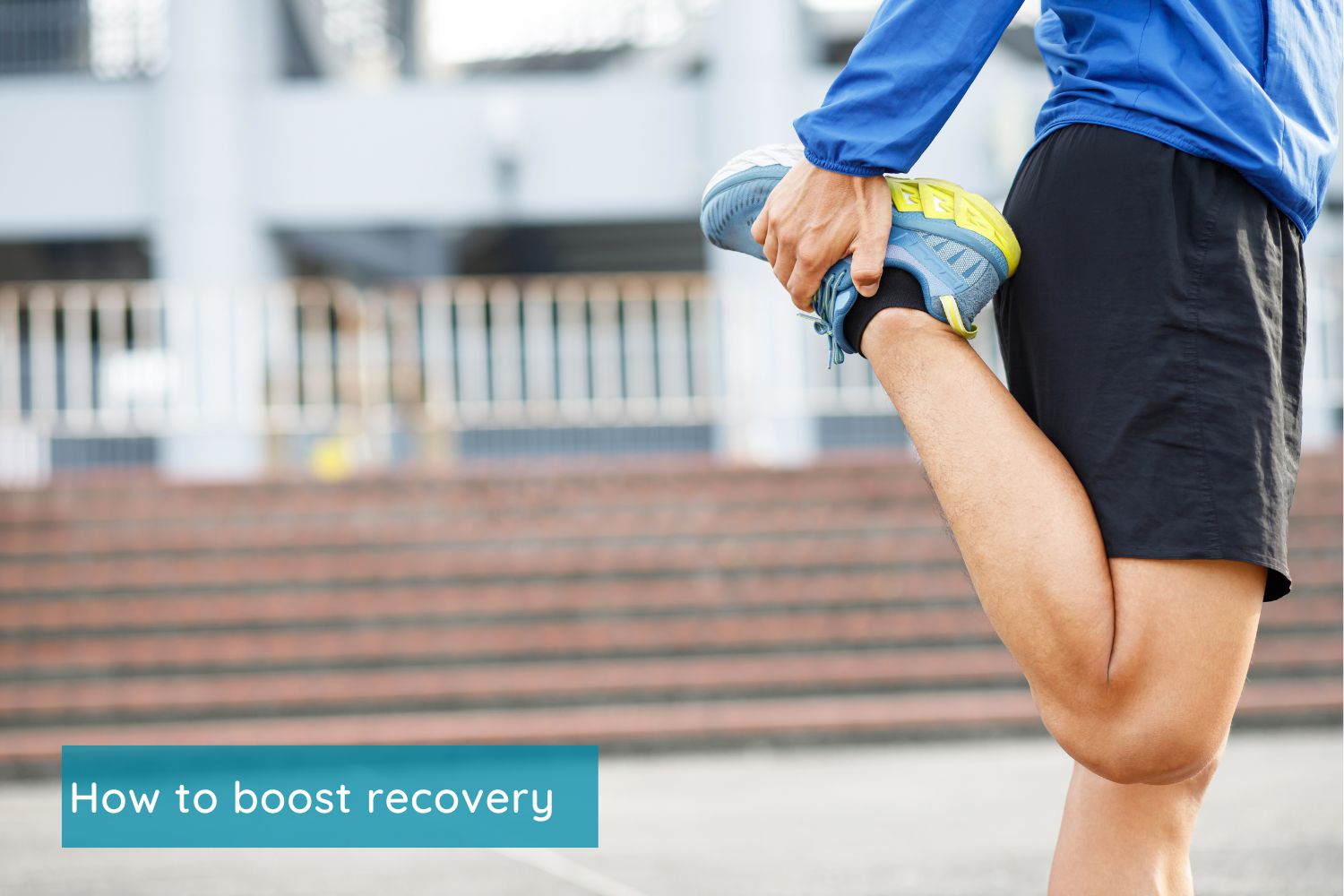How to boost recovery after exercise

Why is recovery important?
The recovery process begins at the end of a bout of exercise. This process lasts until the person has returned to a fully recovered state. The recovery period depends on factors such as current fitness levels, age, and the intensity of the exercise. Recovery is a crucial aspect of any workout programme.
The body's adaptations to exercise occur during the recovery period. We don't get fitter or stronger during our workouts. We experience these improvements while we recover!
For example, the gains in strength and size of our muscles happen outside the gym. Lifting weights results in micro-tears in the muscles of the body part(s) trained. It is the reason we feel sore after a heavy session! Our body responds by sending nutrients to the area to aid in recovery. These nutrients repair the muscle, and the body builds the muscle back bigger and stronger. The same principles also apply to the adaptations experienced after aerobic endurance activities such as running or cycling.
How can we speed up muscle recovery?
It is clear that recovery is needed for optimal performance. There are steps we can take to help speed up this recovery process. The first thing we should focus on improving is our sleeping habits. Getting enough sleep is essential for muscle recovery. Aim to get approximately 7-8 hours of sleep every night.
Hydration is also crucial! Water helps bring the needed nutrients needed for repairing the areas of the body exercised. Drinking enough water also ensures that toxins and waste are excreted. It also helps to regulate body temperature and help the heart pump blood throughout the body.
The correct nutrition is also crucial. Eating a balanced diet gives the body the fuel it needs to heal. Getting enough dietary protein is of significant importance as it assists in rebuilding damaged muscle tissue. Good sources of protein include lean meats, eggs, fish, and milk. Protein shakes can be a quick and convenient way to boost your protein intake. Carbohydrates also play a beneficial role in muscle recovery. They help to replace glycogen, a form of energy stored in the muscles lost through exercise. Studies have shown that chocolate milk is an effective post-workout drink that can help with recovery as it contains a good ratio of carbohydrates to protein.
Stretching and rolling out sore muscles are also effective practices you can incorporate into your routine. Stretching tight areas helps increase blood flow and decrease muscle soreness and stiffness. Yoga wheels are an excellent tool that can help you during stretching sessions. They are frequently used by yogis, but their popularity is increasing among gym-goers and athletes too. Yoga wheels help assist you during difficult stretches, allowing you to stretch further than usual. The wheel also supports you during backbends, allowing you to roll the wheel up and down your spine for a full spinal massage.
Conclusion
Recovery is an essential but often overlooked element of any workout routine. It is crucial for people of all fitness levels. The recovery process is where the body adapts to the stress placed on it through exercise. It responds by rebuilding bigger and stronger. There are specific factors that influence the length of the recovery period, such as age, fitness levels, and workout intensity. There are steps you can take to help speed up this process. Getting enough sleep and ensuring you stay hydrated is extremely important. Getting the correct nutrition through your diet must also be considered. Stretching is a great way to improve blood flow to damaged tissue. Yoga Wheels are excellent tools that allow you to stretch and roll out sore and stiff muscles.







